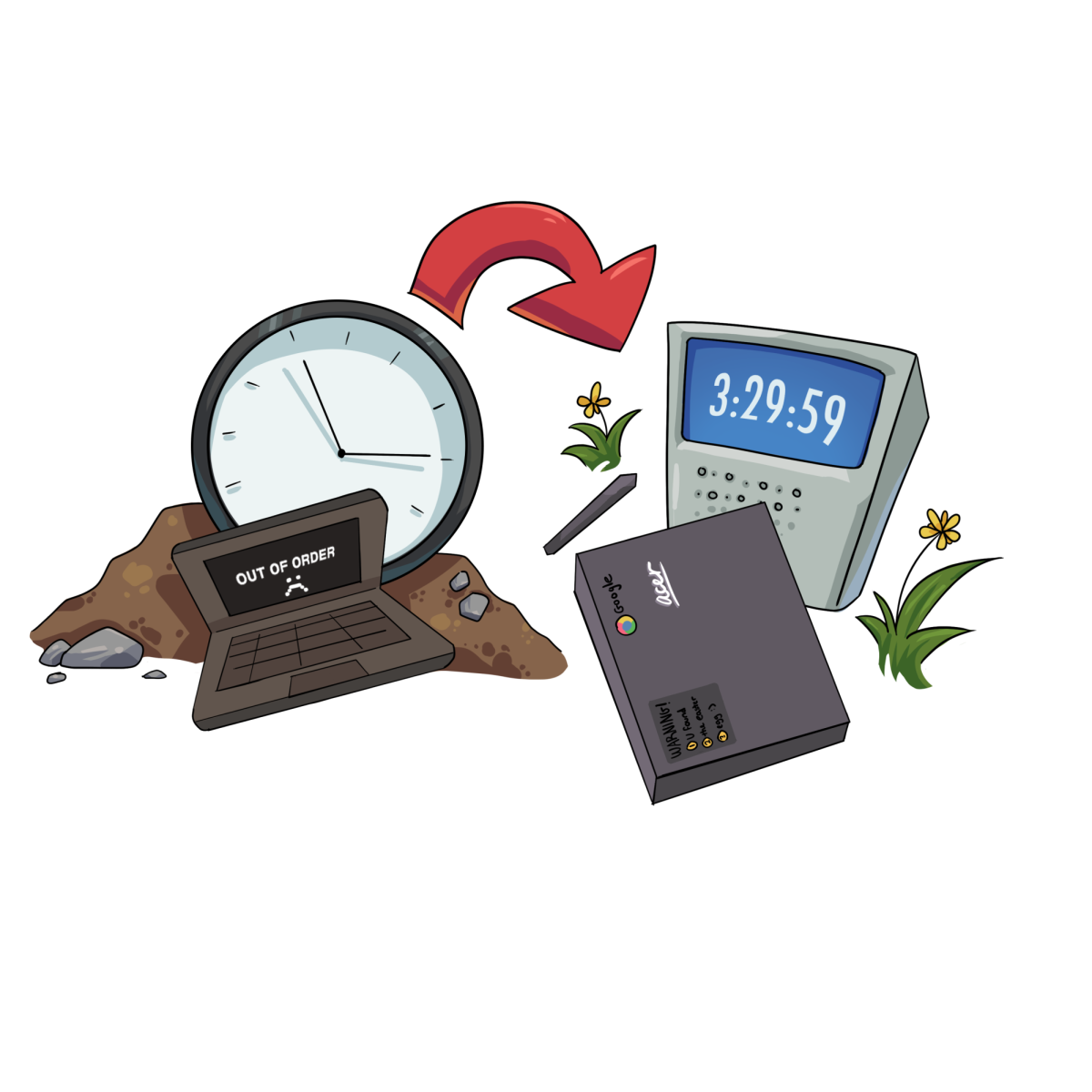As the clock slowly ticks, sophomore Teresa Wang repeatedly taps a pencil on her desk and holds her head heavily in her hand, staring blankly at the worksheet in front of her.
Losing patience at her inability to grasp the concepts, her eyes quickly dart to the hypnotizing warm light radiating from her phone. Tempted by her diminishing attention span and the reward of Instagram Reels, she drops the pencil and eagerly extends her arm to reach the phone.
A research study conducted by Microsoft in 2004 and 2023 found that the average time a person stayed on any given screen in 2004 was 2 minutes and 30 seconds. In 2023, however, the number was down to 7 seconds.
Wang said many students are partially attributing the decline in attention span to the regular usage of short videos, also known as short-form content, on popular platforms such as Tiktok, Instagram and YouTube.
“After watching a ton of these Instagram Reels, I tend to get more impatient when I’m trying to do longer tasks like homework because I’ve been trained to digest really fast content,” Wang said.
Junior Richelle Wong said even in short-form media, videos often contain stimulating features to keep users engaged.
“I’ve noticed that a lot of the time, people only watch the Instagram Reel if there’s (another) video,” Wong said. “For example, Subway Surfers (in the background) keeps them entertained. Versus if a Reddit story video is only reading the text, it’s not very entertaining and people don’t watch it.”
Wong also said popular YouTube creator MrBeast progresses in the YouTube algorithm by condensing longer-form entertainment into short-form videos.
“I watched a MrBeast documentary where he said in order to be competitive in the YouTube video market, he has to basically do what an entire show would do –– which would take like 40 minutes per episode –– and condense it into a two-minute YouTube short to keep people’s attention,” Wong said.
Wong said MrBeast makes his longer videos actively engaging by rapidly changing topics to keep his audiences’ attention.
“MrBeast makes these 20-minute long videos and I don’t even look at how long the video is because every five seconds, there’s a new jump cut and every two minutes, it’s a whole new scene,” Wong said. “Since (the video) is super interesting the entire time, I completely forget that the video is actually 20 minutes long, and I probably wouldn’t have clicked on (the video) if I saw that it was that long.”
Sophomore Sthavyashri Chaithanya said she’s recently noticed short-form content’s negative influence on her classmates’ attention spans.
“If (students) aren’t allowed to use their phone in class, they play Tetris or games, or read comics, webtoon or something like that in class,” Chaithanya said. “That happens in my classes a lot.”
Chaithanya said she foresees a bleak future for students’ attention spans as technology and social media evolve.
“In 10 years, when there’s more technology and more social media, students might not even be able to take a normal test because you need to have time and patience to do a test or to really understand the problem,” Chaithanya said. “Even doing daily academics is going to be a problem.”
Dr. Tammy Tran, a postdoctoral fellow of memory and neuroscience at Stanford, said research is still in its early stages, and the influence of short-form content on attention span can’t yet be concluded.
“This is an active area of research and people are exploring this, but at this moment, it is unknown how long-term usage of TikTok might affect attention,” Tran said.
But Chaithanya said she uses specific strategies to mitigate her declining concentration when studying.
“If I’m sitting for a long time, I feel a little bit irritated or agitated so I try to go for a walk and then drink water,” Chaithanya said. “In general, knowing I’m going to be relaxed (and) happy (after studying) makes me persevere.”
Similarly, Wang said teachers can lessen students’ declining attention span by creating a more captivating learning environment inside the classroom.
“The reason why I see a lot of students sneak on their phone in class is just because the teacher is not engaging the students enough, they are talking too much or they just teach in a way that’s boring,” Wang said. “If teachers really project that they want you to learn, it’ll decrease the likelihood of students being distracted.
Math teacher Sarah Brankis said it is more and more common nowadays to see students give up when encountering a difficult problem, but she tries to regain students’ attention by incorporating brain breaks that involve some sort of physical activity.
“We sometimes play ‘head, shoulders, knees and toes’ to get blood flowing and get them out of their seats,” Brankis said. “I notice that the phone break sometimes isn’t enough of a change for them, so the physical act of getting up and spinning around helps them get back on track whenever we do sit back down. Not only are we having fun while we do this, but it really does help shake things up enough that their focus returns.”
For students who struggle to concentrate in class, Brankis said she suggests bringing in fidget toys and reaching out to teachers for breaks.
“You have to work with your brain to figure out what it needs to be successful, then learn how to advocate for yourself in asking for what you need,” Brankis said.
In the meantime, Tran said she recommends students be actively aware of their use of short-form content to limit issues with their attention spans.
“I would recommend looking at the TikTok Use Scale, filling it out and grading it yourself,” Tran said. “It could provide a clear, unbiased perspective to whether you may or may not be excessively consuming short-form content. You can also use other apps to limit your time on the app.”









Jimmy Watson • Aug 21, 2024 at 4:21 pm
Hello campanilee hahaha
great one here, i like mr feast!!